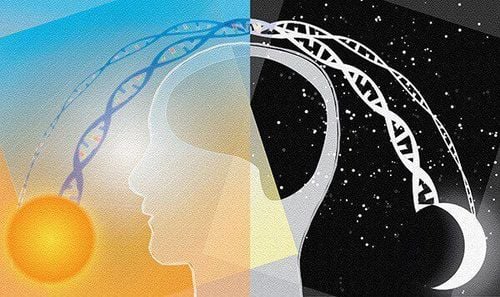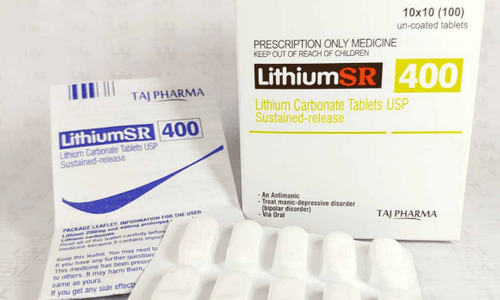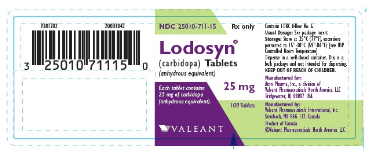This is an automatically translated article.
Few things are better than a good night's sleep, but many of us struggle to get some sleep. If you try to fall asleep and wake up at a certain time, or force yourself to yawn throughout the day, your circadian or Circadian rhythm may be altered. So what is a Circadian rhythm and what does it mean to get used to your "Circadian rhythm"? Read more articles below to understand more about this issue.1. What is the Circadian rhythm?
Circadian rhythms, also known as circadian rhythms, help control our daily sleep and wake schedules. This rhythm is tied to each person's 24-hour circadian clock, and most living things have one. Our circadian rhythms can be influenced by external things like light and darkness, as well as other factors. The brain picks up signals based on an individual's environment and activates certain hormones, changing your body temperature and regulating your metabolism to keep you awake or pull you to sleep. Some may have disrupted circadian rhythms due to external factors or sleep disturbances. Maintaining healthy habits can help you better respond to this natural rhythm of your body.Although we won't hear a tick, each person's body has its own biological clock. The physical and mental changes it causes are called circadian rhythms. Most organisms have them, including animals, plants, and even some germs. The circadian rhythm affects how we sleep as well as how our bodies function, such as our hormones, body temperature, and eating habits. When circadian clocks in general and circadian rhythms in particular are disturbed, they can also cause health problems. Circadian rhythm disturbances have been associated with various disorders including diabetes, obesity, and depression. To get a good night's sleep, you need to know what keeps your body's clocks working properly and what can cause your body's rhythms to get out of whack.
2. How does the Circadian rhythm work?
There are several components that make up our body's circadian rhythms. It is one of four circadian rhythms in the body.Cells in the body
First, the cells in our brain respond to light and darkness. The eyes capture such changes in the environment and then send signals to different cells about when to fall asleep or to wake up. Those cells then send more signals to other parts of the brain to activate other functions that make us feel more tired or alert.
Role of hormones in circadian rhythms
Hormones like melatonin and cortisol can rise or fall as part of the circadian rhythm. Melatonin is a hormone that makes you sleepy and your body secretes more at night while suppressing it during the day. Cortisol can help the body stay awake and produce more in the morning.
Others
Body temperature and metabolism are also part of our circadian rhythms. Body temperature drops during sleep and rises during waking hours. In addition, the body's metabolism also works at different rates throughout the day.
Other factors can also affect a person's circadian rhythm. Your rhythm may adjust based on your work hours, physical activity, and additional habits or lifestyle choices. Age is another factor that affects your circadian rhythm. Babies, teenagers, and adults all experience circadian rhythms differently.

Nhịp điệu Circadian còn gọi là nhịp sinh học của cơ thể
Newborns do not have a developmental circadian rhythm until they are a few months old. This can make their sleeping habits erratic during the first days, weeks and months of life. Baby's circadian rhythms develop as they adapt to their environment and undergo changes to their body.
Babies begin to secrete melatonin at about three months of age, and the hormone cortisol develops between 2 months and 9 months of age. Toddlers and children have a fairly regulated sleep schedule after their circadian rhythms and respective bodily functions mature. Children need about 9 or 10 hours of sleep each night.
Circadian rhythms in adolescents
Adolescents experience a change in their circadian rhythm known as the late sleep phase. Unlike their childhood years with an early bedtime around 8 or 9 p.m., teenagers may not feel tired until late at night. Melatonin may not rise until close to 10 or 11 p.m. or even later.
That change also leads to teenagers' need to sleep later in the morning. Their peak sleepiness at night is between 3am and 7am - or maybe even later - but they still need the same amount of sleep as children.
Adult Circadian Rhythm
Adults should have a fairly stable circadian rhythm if they practice healthy habits. Their bedtime and wake-up time should remain consistent if they follow a regular schedule and aim to get seven to nine hours of sleep each night. Adults may fall asleep before midnight, due to the release of melatonin in their bodies. They reach their most fatigued stages of the day between 2 and 4 a.m. and 1 to 3 p.m.
Older adults may notice that their circadian rhythms change with age, and they start going to bed earlier than before and waking up earlier. All in all, this is a very normal part of the aging process.
Circadian rhythms are out of sync
Sometimes you can't follow your circadian rhythm, due to lifestyle needs and conflicting your own internal clock. This can happen because:
Must work overnight or overtime shifts that are contrary to the natural daylight hours of the day. Shift work for irregular hours. Travel spans one or more different time zones. Often have to stay up late and get up early due to work or any other effects Drugs being used Prolonged stress. Mental health status. Health conditions such as brain damage, dementia, head injuries, and blindness. Poor sleep habits, including lack of sleep schedule, late night eating or drinking, watching screens too close to bedtime, or not having a comfortable sleeping space.

Trẻ sơ sinh không có nhịp điệu Circadian đến khi trẻ được vài tháng tuổi
3. Circadian Rhythm Re-establishment
Disruption of the circadian rhythm is completely normal and we can totally get it back on track. Here are some tips to re-establish and maintain a healthy Circadian rhythm:Try to stick to healthy habits every day. Spend time outdoors during the day to improve alertness and let your circadian rhythm get used to that time Get regular exercise - thirty minutes or more of aerobic exercise is usually recommended for at least 5 Days per week Sleep in a comfortable environment that suits your rest needs with proper lighting, a comfortable temperature, and a supportive mattress. Avoid alcohol, caffeine, and nicotine in the evening. Power off your screen before bed and try other soothing activities before bed, such as reading or meditating. Do not nap late in the afternoon or evening. Sometimes changes to our circadian rhythms can be a sign of a more serious condition like a circadian rhythm sleep disorder. Two of these disorders are the advanced sleep phase and the late sleep phase. We may be more susceptible to these diseases if we work irregular shifts, are blind, or are teenagers or older.
Late sleep phase disorder occurs when a person goes to bed and wakes up in two hours or less than most people. They may think of themselves as “night owls”. Teens and young adults are more susceptible to this condition.
Advanced sleep phase disorder is the opposite of late sleep phase disorder. People with advanced sleep phase disorder actually fall asleep a few hours before most people and then wake up very early in the morning.
Disorders related to your circadian rhythm can lead to difficulty falling asleep at night, frequent awakenings throughout the night, awakening and inability to fall back asleep in the middle of the night. Symptoms associated with these conditions include:
Insomnia Difficulty waking up in the morning Fatigue throughout the day Depression or stress Other conditions related to our circadian rhythms include :
Flight delay syndrome, caused by fast travel across multiple time zones Work change disorder, caused by an odd job or a job with unpredictable hours Sleep disorder - irregular waking , due to not being able to set a regular sleep and wake schedule

Tái thiết lập nhịp điệu Circadian bằng cách dành thời gian ở ngoài trời vào ban ngày
Set a more regular schedule Use light therapy Take medications or supplements like melatonin to make it easier to fall asleep Try a deliberate change in your sleep done over a few days or several weeks Maintaining circadian rhythms is very important for everyone's health. If you have a circadian rhythm disorder that leads to insufficient sleep, you could experience both short-term and long-term consequences for your health.
Disruption to your circadian rhythm can cause health conditions in several parts of the body in the long run. These include:
Health problems related to organs, organ systems in the body Affect the cardiovascular system Affected metabolism Digestive disorders Skin problems You also may be more susceptible to diabetes, obesity, and mental health conditions. Short-term disruptions to your circadian rhythms can lead to memory problems or a lack of energy. It can also take longer to heal from an injury if you don't get enough sleep.
Circadian rhythms are the body's natural way of maintaining a 24-hour circadian clock, helping your body function on a healthy sleep-wake schedule. Living a healthy, active lifestyle that encourages proper rest will help you maintain a healthy circadian rhythm. Contact your doctor if you have persistent trouble sleeping or are too tired during the day to learn how you can readjust your circadian rhythms and get proper rest.
Please dial HOTLINE for more information or register for an appointment HERE. Download MyVinmec app to make appointments faster and to manage your bookings easily.
References: webmd.com, healthline.com, sleepfoundation.org












